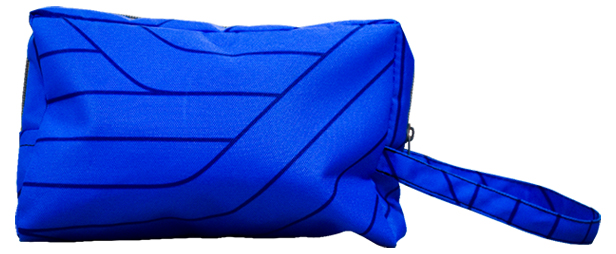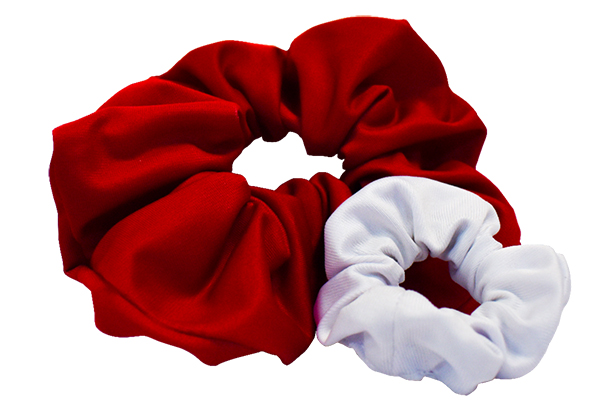December 20, 2023
Cutting Its Textile Waste, Ameramark To Launch Upcycled Goods
The canopy-tent supplier is transforming its scrap material into scrunchies and other unique products.
Santa Ana, CA-based Ameramark (asi/53455) is getting creative with its textile waste.
Earlier this year, the promo supplier of products that include canopy tents, wind flags, table covers and inflatables opened a 25,000-square-foot production facility in Ensenada, Mexico. At the time, executives said the new factory allowed Ameramark to offer more cost-effective items to distributors.
Another goal of the new facility, says partner Alex Avendano, is to reduce waste generation and increase sustainability. In its U.S. operations, Avendano says, 9% of the textile it used ended up as waste, but thanks to a focus on efficiency, Ameramark was able to cut its textile waste to 7% at its Mexico factory – and is implementing some of those same processes to reduce waste at its California facilities.
“We changed a little bit of our layout, so we were more efficient in the way that we cut our fabric,” Avendano sharea.
Ameramark has been using the remaining scrap fabric to create a new line of about 25 different products – a move that has reduced textile waste at its Mexico facility to 1%.

Ameramark (asi/53455) is crafting cosmetic bags from textile waste generated at its Mexico facility.
“We’ve been working for years on how to reduce waste, especially from the 600-denier polyester,” Avendano says. “It’s a great material – it’s fire retardant, water-resistant, with UV protection, but the big issue is because of all that, it takes forever to degrade.”
He adds that in the past, Ameramark hasn’t had a lot of success recycling its heavy-duty polyester tent fabric. “It’s almost impossible to find companies that can do it,” he says.
So instead, the supplier turned to upcycling – the process of transforming discarded objects and other waste into a product of higher quality. Ameramark’s new line, which will be officially introduced to the promotional products industry at the ASI Show Orlando in January, includes upcycled pencil cases, cosmetic bags and scrunchies.
Before creating the new products, Ameramark heat-treats the fabric scraps to make sure they’re clean. The scraps from cutting one 10-foot-by-10-foot tent top can generate about eight to 10 upcycled cosmetic bags, Avendano says. Some of the scrap textile already has customer art printed on it, but because of the upcycling process, logos and text won’t be apparent. Instead, Avandano says, the result is a unique and eye-catching pattern.

Scrunchies are another new upcycled product the supplier will launch next year.
“Some of the graphics are so amazing when you create a cosmetic bag,” Avandano says. “You’d never be able to guess the original product.”
The upcycled product line is just the start of sustainability initiatives for the firm. Next June, Ameramark plans to launch a takeback program, where customers can return products they no longer need or want, and the supplier will recycle or upcycle them, Avendano says.
Upcycling as a concept has increasingly gained traction in the promo industry as a way to both divert waste from landfills and create unique new products that tell a compelling sustainability story. In February, for example, Winnipeg-based supplier Botanical PaperWorks (asi/41273) launched a new line of products sourced from repurposed pallet wood. Redwood Classics Apparel (asi/81627) has worked with garment-upcycling company Preloved on a number of projects over the years, including a bag collection made from single-use street-pole banners from the 2015 Pan Am Games in Toronto.

Promo for the Planet is your destination for the latest news, biggest trends and best ideas to help build a more sustainable and socially-responsible industry.
